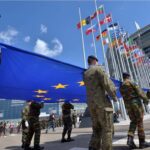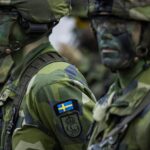When Donald Trump suggested buying Greenland or hinted at annexing Canada, it seemed like a joke or a political provocation. But in reality, these ideas could be part of a larger geopolitical game. At the center of attention is the North-West Passage, a sea route through the Arctic that is becoming more accessible due to global warming.
Arctic Economic Revolution
The North-West Passage could change the entire world’s logistics. Today, the main trade route between New York and Tokyo goes through the Panama Canal, covering 18,200 km. However, through the Arctic, this distance is shortened to 14,000 km, which means significant fuel, time, and financial savings. For companies transporting goods between Europe, Asia, and North America, this could be a real revolution.
Canadian Control: Why Is It Important?
However, there is a political aspect to this issue: Canada claims that the North-West Passage falls within its territorial waters. This means that any navigation through this route should be controlled by the Canadian government. On the other hand, the US argues that the passage constitutes international waters and seeks access to this strategic route.
Global Struggle for the Arctic
Canada is not the only country fighting for control over the Arctic. Russia is actively expanding its presence in the region, building new military bases and investing in Arctic infrastructure. China is also interested in this route, viewing it as part of its “Polar Silk Road.”
Conclusions
The issue of the North-West Passage is not just an arctic adventure but a major strategic struggle for control over future trade routes. The US, Canada, Russia, and China are competing for influence in a region that could reshape global logistics.
🔹 Will the Arctic become a new geopolitical frontier?
🔹 Can Canada maintain control over its waters?
🔹 And most importantly, will we see new attempts by the US to expand its influence in the North?
Global politics is changing, and the Arctic is becoming its new epicenter.


